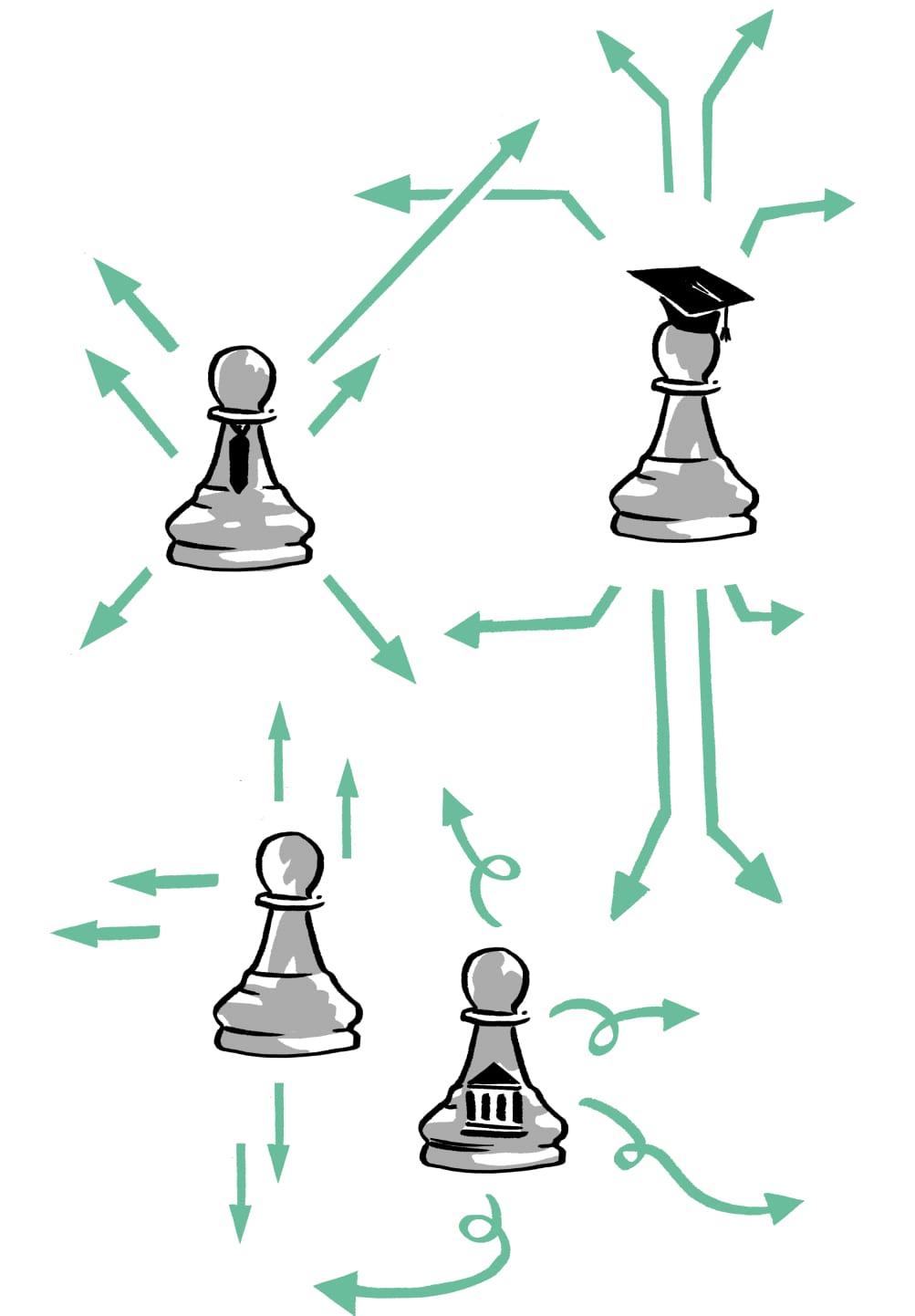
Knowledge and technology transfer still experiences a lack of acceptance and application in the scientific sphere, partly triggered by resource bottlenecks, but also by a lack of institutional recognition. Socio-cultural aspects or aspects of corporate culture such as different time orientation, motivation, individual working methods, market orientation or entrenched or bureaucratic handling also make cooperation difficult. The challenge is to jointly find potential overlaps.
The literature confirms the discrepancies especially between scientists and actors from society due to their involvement in different organizational units with different structures, logics and norms (Kurzhals et al., 2021, in reference to Unertl et al., 2015). To date, knowledge and technology transfer is still a low priority among a large number of scientists or even in entire institutions, and often still lacks acceptance and institutional recognition, as the focus of universities is still primarily based on classical scientific rather than societal success metrics (Kurzhals et al., 2021, in reference to Jacobson, Butterill & Goering, 2004). Societal actors, on the other hand, are often bound to processes and dynamics of the market and have to react quickly and flexibly to corresponding developments. This flexible and time-sensitive behavior is often difficult to reconcile in collaborations with scientific actors who are bound by scarce resources, research applications, and bureaucracy (Kurzhals et al., 2021).